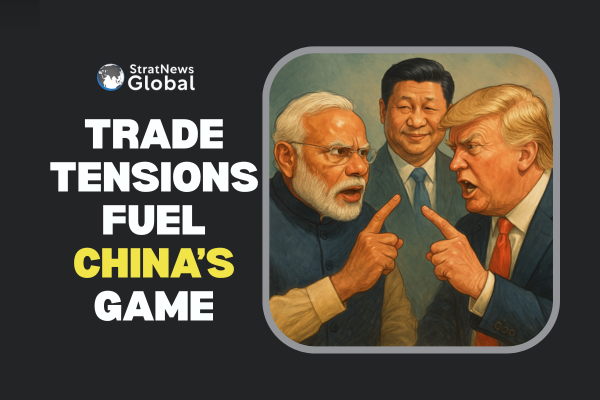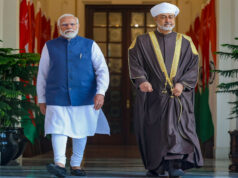The standoff between India and the US on tariffs has been likened to that old fable about two monkeys quarreling over a cake, who enlist the help of a cat to arbitrate. And before you know it, the cat has had all of the cake. The cat in this case being China.
The point being made is that while the US draws swords with friends, allies and partners on trade, China has leveraged the battle by positioning itself as a steady partner and in the process, taking a hefty slice of global trade (the cake).
China is widening trade links with ASEAN, the Arabian Gulf and Africa through targeted investments, energy agreements, and bilateral deals. Chinese firms are undercutting global rivals with competitive pricing in technology, electronics, and green energy. In a word, Beijing is projecting itself as a stable and dependable partner.
In May 2025, President Xi Jinping offered a $9 billion investment credit line to Latin American and Caribbean leaders, cementing China’s role as South America’s largest trading partner. Twenty-two Latin American countries are now part of the Belt and Road Initiative, while Africa sees expanding Chinese investment in infrastructure and minerals.
In the case of the US-India trade impasse, says Anushka Saxena of the Takshashila Institution, “China is cleverly exploiting the India–US tariff dispute to serve its own interests. Publicly, Beijing positions itself as supportive of India, enhancing its image as a friendly partner, while privately engaging with Trump to secure favourable terms for itself.”
Echoes Namrata Hasija of the Centre for China Analysis and Strategy “China’s biggest strategic gain from the India–U.S. tariff dispute is the strain it puts on the India-U.S. partnership. It could weaken the QUAD and the Indo-Pacific strategy, which are both important in countering China.”
That apart, it triggers anger and resentment, notes Amit Kumar, scholar at the Takshashila Institution. “It sends the wrong message. India feels singled out, while China benefits from exemptions.”
But there is another more insidious impact, notes Prof Jabin Jacob of Shiv Nadar University. “China’s advantages are not just economic but also political. While the Chinese market and Chinese investments have once again become attractive to Indian businesses, the real long term impact will be that the Indian government’s ability to direct its business community away from China has declined considerably.”
“While China’s supply chain or technological advantages can be eventually overcome when other sources open up or if countries/companies catch up in technology, the perceived reliability of the Chinese economic system compared to that of the American one, will slow down these diversification and catch-up efforts in India. Immediate profit is often the priority over long-term capacity-building, he added.”
“A breakdown of political trust between the two sides would augur well from a Chinese perspective,” argues China scholar Manoj Kewalramani of the Takshashila Institution. “It might result in New Delhi being far more amenable to Beijing’s political concerns and to working jointly in areas of trade and technology.”
Research Associate at StratNewsGlobal, A keen observer of #China and Foreign Affairs. Writer, Weibo Trends, Analyst.
Twitter: @resham_sng





